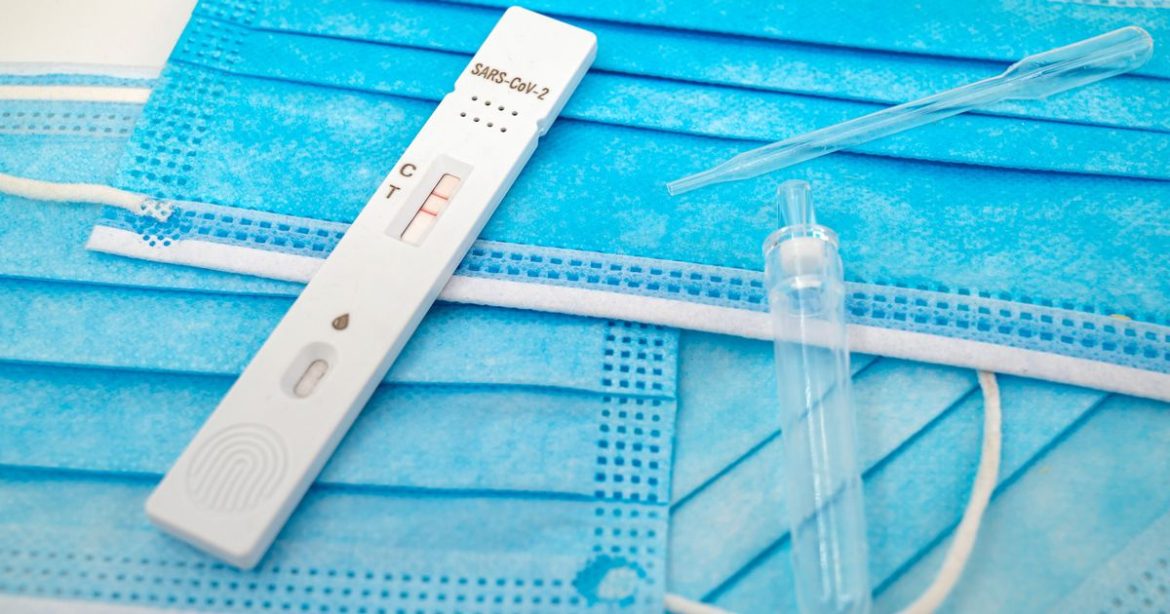A new Covid variant XFG is circulating and has been steadily dominating cases across the UK
People experiencing certain symptoms of Covid-19 are being urged to seek an ‘urgent appointment’ with their GP as the XFG variant continues to dominate the UK’s Covid case numbers.
Latest figures from the UK Health Security Agency (UKHSA) reveal that both flu and Covid-19 cases have been on the rise since late September, coinciding with dropping temperatures across the nation.
The government body reported a week-on-week increase in Covid-19 positivity from 7.6% to 8.4%, while hospital admissions due to the virus also rose from 2 per 100,000 to 2.73 per 100,000.
READ MORE: Covid Stratus warning to anyone who vapes as new strain sweeps across Northern IrelandREAD MORE: “I thought it was a nightmare idea”- Boris Johnson insists there had been planning for Covid school closures
The current most common SARS-CoV-2 variant in Northern Ireland is NB.1.8.1 but there has also been growing concern recently around the spread of the newest Covid-19 strain, known as ‘Stratus’, which has two variants, XFG and XFG.3.
XFG is a hybrid of two omicron strains, LF.7 and LP.8.1.2, according to the World Health Organisation (WHO). It was first discovered in January of this year, and by June, the WHO declared XFG to be ‘under monitoring’ due to its ‘increasing proportions globally’.
In light of this heightened infection risk, people are being urged to arm themselves against the virus by getting vaccinated where possible. Vaccines can bolster your immune system’s defences against coronavirus and other viruses, helping to stave off severe complications should you become infected.
Last month, health officials released details of who is eligible for free vaccines in Northern Ireland this winter. The Public Health Agency (PHA) is reminding everyone that respiratory illnesses such as flu, COVID-19 and RSV can be serious, even for some healthy people.
Last year 862 children and young people, and 3,158 people aged 18 and over, were hospitalised with influenza in Northern Ireland. Of those 2,922 were an emergency hospital admission.
Dr Jamie Lopez Bernal, Consultant Epidemiologist at UKHSA, has also issued a timely reminder: “Flu and COVID-19 levels are starting to slowly increase. While this is to be expected at this time of year, now is the time for people to come forward for their winter vaccines if they’re eligible, before we start to see more of these viruses in circulation in the winter months.
“Vaccination offers the best protection against flu, COVID-19 and RSV which is why it’s vital that eligible groups get vaccinated. If you have symptoms of flu or COVID-19 such as a high temperature, cough and feeling tired and achy, try to limit your contact with others, especially those who are vulnerable.
“If you have symptoms and need to leave the house, our advice remains that you should wear a face covering. Washing hands regularly and using and disposing tissues in bins can reduce the spread of respiratory illnesses.”
Coronavirus symptoms and when to call a doctor
If you do become infected with Covid-19, you may experience some of the following symptoms:
- Blocked or runny nose
- Feeling sick or being sick
- Shortness of breath
- Feeling tired or exhausted
- A loss or change to your sense of smell or taste
- A high temperature or shivering (chills)
- A sore throat
- An aching body
- Diarrhoea
- A headache
- A new, continuous cough
- Loss of appetite
While in most people these symptoms will begin to get better in a few weeks on their own, the NHS has also warned in its Covid-19 guidance that there are some situations in which you may need to ‘ask for an urgent GP appointment or get help from NHS 111’.
You may need to do this if you experience the following:
- You’re worried about Covid-19 symptoms in yourself or your child and don’t know what to do
- A child aged three to six months has a temperature of 39 °C or higher
- A child under three months has a temperature of 38 °C or higher
- You or you’re child has experienced a high temperature that lasts five days or more and isn’t treatable with paracetamol
- You or you’re child experiences a rash, loss of appetite, or feeling weak
- The symptoms of Covid-19 infection are getting worse instead of better
Further advice on what to do if you have Covid-19 can be found on the NHS website here.
For all the latest news, visit the Belfast Live homepage here and sign up to our daily newsletter here.
#Covid #symptom #urgent #attention #NHS #warns

